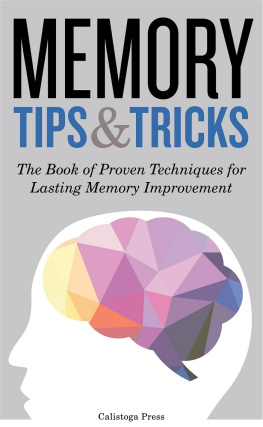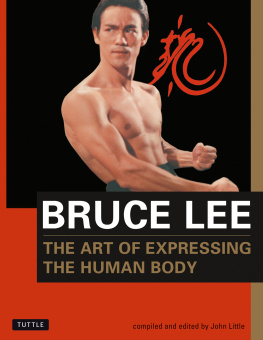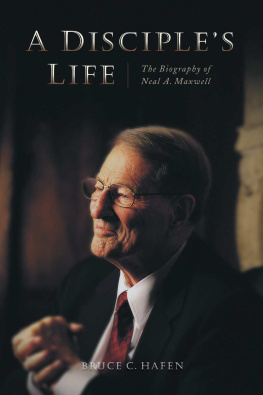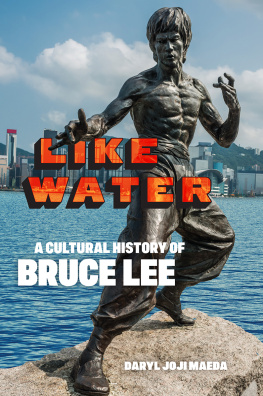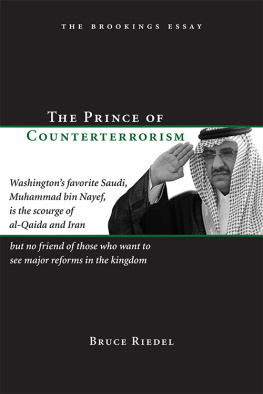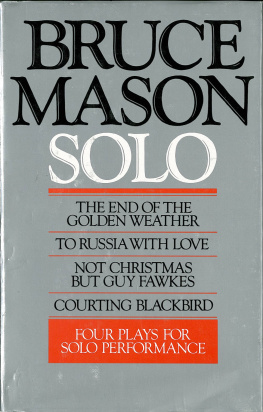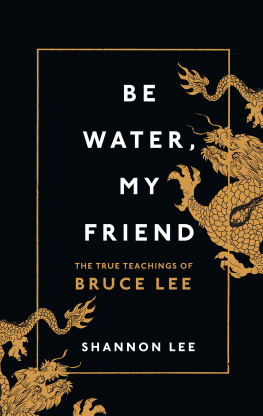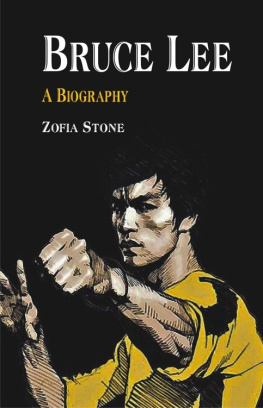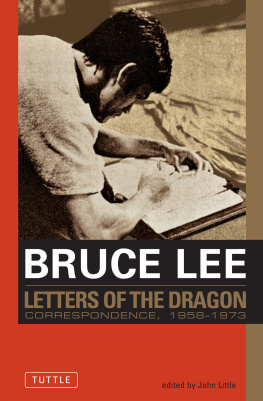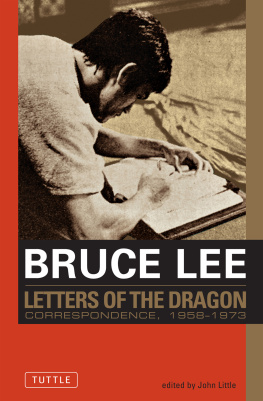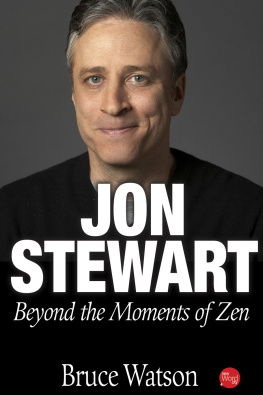BE WATER, MY FRIEND
THE BIOGRAPHY OF BRUCE LEE
Copyright 2020
University Press
All Rights Reserved
Want to Fill Your Kindle Library For Free?
Join our Exclusive Reviewers Club
And Get a Free Kindle Book
In Your Inbox Every
Friday.
Click Here to Join Our Reviewers Club!
Introduction
The name Bruce Lee inspires a range of different images in people's minds. The man is a legend who has inspired a wide range of arts, from martial arts and acting to philosophies and poetry. Known for his strength and physical feats, Lee was very much an intellectual as well. From starting his own style of martial arts to making Chinese action movies a popular genre in the United States, he is an icon whose star power continues to rise. Even if people have not seen one of his movies, they can still recognize his picture, and most people have heard the titles of his most famous movies. Because he died at a young age while in apparently perfect physical condition, there have been numerous conspiracy theories and legends that have started since his untimely death. The theory of a family curse was later hatched after the early death of his son, Brandon.
While Bruce Lee died at only 32 years of age, the influence of his legacy has had a profound impact on several industries. His legacy has influenced the worldwide film industry, martial arts world, and fitness universe. Some of the best-known names in action movies worked with him, including Jackie Chan, Chuck Norris, and Steve McQueen. Because of the immense influence he had, particularly in Hollywood, many people are surprised to learn that he only appeared in five American films. The only other legendary actor with such outsized influence in Hollywood was James Dean, who appeared in only three movies before his death. Lee has had enormous influence because he brought a new kind of movie to America, and the martial arts genre has remained wildly popular ever since his first film was released.
His work behind the scenes is what really helped to build his legacy. Lee created his own style of martial arts and taught it to numerous people in Hollywood. He had a small frame, but he could take down men who were substantially larger than he was. When he found that Hollywood had problems hiring someone from China for many parts, he started his own studio. Not only did it allow him to start acting in films, but he had full control over what was depicted. This is what made his performances so iconic and memorable. He was always the kind of man who overcame the obstacles that were before him.
He is such a legend that it can be challenging to see the man behind that legend. Trying to separate the man from the myth is not easy, even nearly five decades after his death, but there are still plenty of people alive today who knew him, giving history a more accurate peek into who he was.
Chapter 1
Beginning Life Far from Home
Bruce Lee was born on November 27, 1940, to Grace Ho and the famous Hong Kong opera singer, Lee Hoi Chuen. At the time, his father had been on tour in the United States since 1939. Lee was the fourth child in the family. Because of his family's stay in America, Lee was born in San Francisco, and his parents named him Lee Jun Fan. One of the nurses at the birthing hospital had trouble pronouncing his name, so she called him Bruce. His father continued to tour around the United States until 1941 when he and his family returned to Hong Kong.
Lee's early life is well documented because he was a child actor, following his father into the arts. He actually appeared in his first movie, while still in America, when he was only three months old. He was the stand-in baby in Golden Gate Gir l , released in 1941. Unfortunately, the Japanese occupied Hong Kong while the family had been away. Not much is known about how the family managed through that difficult period in Hong Kong history. Though occupied by Japan, Hong Kong was under British control - a control that resumed after the end of World War II.
During his childhood, Lee was in more than twenty films, with his first real acting job as a child actor occurring in 1946. As a child actor, he demonstrated a wide range of skills, including singing and dancing. He even won an award in a cha-cha competition. It was during these years that he began training in martial arts, specifically the Wing Chun style known in America as Kung Fu. He was often described as being an incredibly active child, with acting being something he really enjoyed. He also loved to read. In fact, he read so much that he ended up needing glasses because of the eye strain.
Many of the roles that Lee took on as a child actor were as street urchins or delinquents, giving him valuable experience in onscreen fighting. He also studied under Master Yip Man, who was a well-known teacher in Hong Kong.
Lee's family was relatively affluent, with two live-in maids and a chauffeur. Lee attended a school for the children of wealthier Hong Kong families and elite British children living in Hong Kong. This proved to be a point of contention later as there seems to have been a rivalry between the European and Asian students. As a result, Lee formed his own gang to square off against the British students, and his gang was called the Junction Street Eight Tigers. He began fighting often, which concerned his parents. During an interview, Lee admitted that he was once very badly beaten by some of the older students, and his desire not to feel weak again was what inspired him to start training in the martial arts. He was still learning to fight and dance, which made him far more agile and graceful when he fought, but this did not impress his parents. Of equal concern was the fact that the frequent fights gained him a bad reputation with the police. His father attempted to punish his increasingly combative son, but Lee Hoi Chuen was frequently away from home, making the attempts to stop the aggressive behavior less effective. Eventually, Lee's parents decided to send him back to the United States - far away from the friends who seemed to be influencing him to fight. Since he was born on US soil, he could claim United States citizenship, which he did. This made it much easier for him to move to the country that he had not visited since leaving as a baby.
Since his family did not return with him, Lee moved to San Francisco in 1959, but he soon moved to Seattle, Washington, where he lived with friends of his family. He took a job as a dance instructor to start earning money for himself while he attended high school in Edison, Washington. Following his graduation, Lee applied for and was accepted at the University of Washington, where he studied philosophy and drama. During his time in college, Lee also taught the Wing Chun style of fighting to other students. Lee did not feel that he needed to fight anymore, but he seemed eager to teach his fellow students - and anyone interested in the martial arts.
By the time he was a young adult, Lee already had the foundations for the legend that he would later become. His acting career was not exactly a part of his life in America, but he already had a lot more experience than most people his age. He was physically adept, with dancing and martial arts making him graceful in his movements, precise in his execution, and formidable in his attacks.
Chapter 2
Early Films and Martial Arts
Of the more than twenty movies Lee acted in as a child, he was in two that appear on the Best 100 Chinese Motion Pictures list created in 2005: In the Face of Demolitio n (released in 1953) and The Orpha n (released in 1960). For fans who want to see his early works - and see how his most iconic looks and motions were present even early in his career, it can be challenging to find these films and even tougher to watch them. Most of the films were not translated into English, and the quality has not held up well. One of the exceptions is The Ki d (released in 1950). It is actually available on YouTube, though it does require payment to access it. For a fan, it is worth the low price because Lee played the titular kid. It is not quite what most people have come to expect from Lee, but it does show hints of some of what came to be a part of his iconic acting looks.





